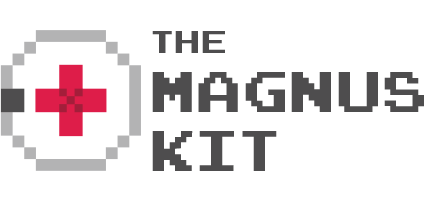Formula Friction
Ubisoft, a French game publisher, has sold millions of games since its inception in 1986. Now it is a near household name, known for Assassin’s Creed, Far Cry, and Tom Clancy series. Ubisoft’s strict adherence to formula has drawn recent criticism, but not the right type. The inorganic nature about Ubisoft’s game design formula causes problems, but not necessarily formula itself.
An organic process follows logically from start to finish. For example, imagine if you are spawned in a room with a nailed-shut door at the end and provided with a claw hammer. You would use the hammer to pry out the nails to open the door and get out. An inorganic process would not follow logically. Imagine if you were spawned in the same room, but given a salmon and expected to know that you have to knock on the door exactly three times with it, at which point the door will open.
The special weapon unlock system in Watch Dogs provides a perfect example of Ubisoft’s game design philosophy. How does completing 17 QR codes teleport a Thompson submachine gun into your inventory? How does solving six missing person cases unlock an Assault Rifle? No explanation or in-world connection is present or offered. Similarly, the in-game world and the side-missions don’t connect. When you move to a start indicator and you are magically transported into the mission, a lack of transition or connection to the game world draws you out of the experience. The side missions lock you into a nonsensical closed-off section that destroys the notion of “open world” almost entirely.
Inorganic game design is present in a fair amount of incredibly well selling games, so people might assume that it’s the norm, or that there are no other ways to make games. However, one need not look far to find plenty of examples of more logical game design.
Assassins’ Creed 4: Black Flag might not be the title you think of when you think organic gameplay, but a large portion of the game is in fact a great example of good design philosophy. Assassin’s Creed 4 tells you that you are a pirate, and you quickly find out that you can do what pirates are famed for: pirating. You can board enemy ships, capture their resources, hire crew members, sell contraband goods at the various ports, and upgrade your pirate ship to allow more pirating. Sailing your ship to find loot to plunder is responsive, intuitive, and enjoyable. Perhaps the only confusing part is having to cut down your opponent’s flag to “claim” their ship. The enjoyment of this game is only marred by the stock Assassin’s Creed style gameplay when off your ship.
In a different vein, Amnesia: The Dark Decent offers some seldom used design choices. In Amnesia you cannot fight the various enemies the a dark and terrifying castle you are trapped in, so you hide. Not being able to fight makes you think hard about how you use the tools you’re given. You can light various candles, or use a lantern, but light allows enemies to see you. Hiding in the dark is an option, but the longer the character is in the dark, the less of a grip your character has on reality. There is no point at which fighting is an option, or when you are expected to figure out that one monster is actually killable if you throw enough barrels at it. You are instructed about the game’s world, given the tools to use, and their use follows very clearly, adding tension and atmosphere and to enhance the horror in the game.
In the Pokémon series, right in the beginning of the first game, you are told that there are many different types of Pokémon. You quickly learn that certain types have strengths and weaknesses and that the best strategy is to use a team of different types. This general style of game has remain mostly unchanged for 20 years. As the success of Pokémon proves, formulas are not necessarily problematic. Many series follow formulas, but they escape the criticism that has plagued Ubisoft of late because they employ organic game design and gameplay.
Organic mechanics are a large part of what makes the aforementioned games great, enjoyable, and some might say timeless. This is not to say that Ubisoft games cannot be enjoyable, or that the company is doomed financially, or that anybody is going to forget the various Ubisoft series, just that good game design should be the focus of any gaming company.





